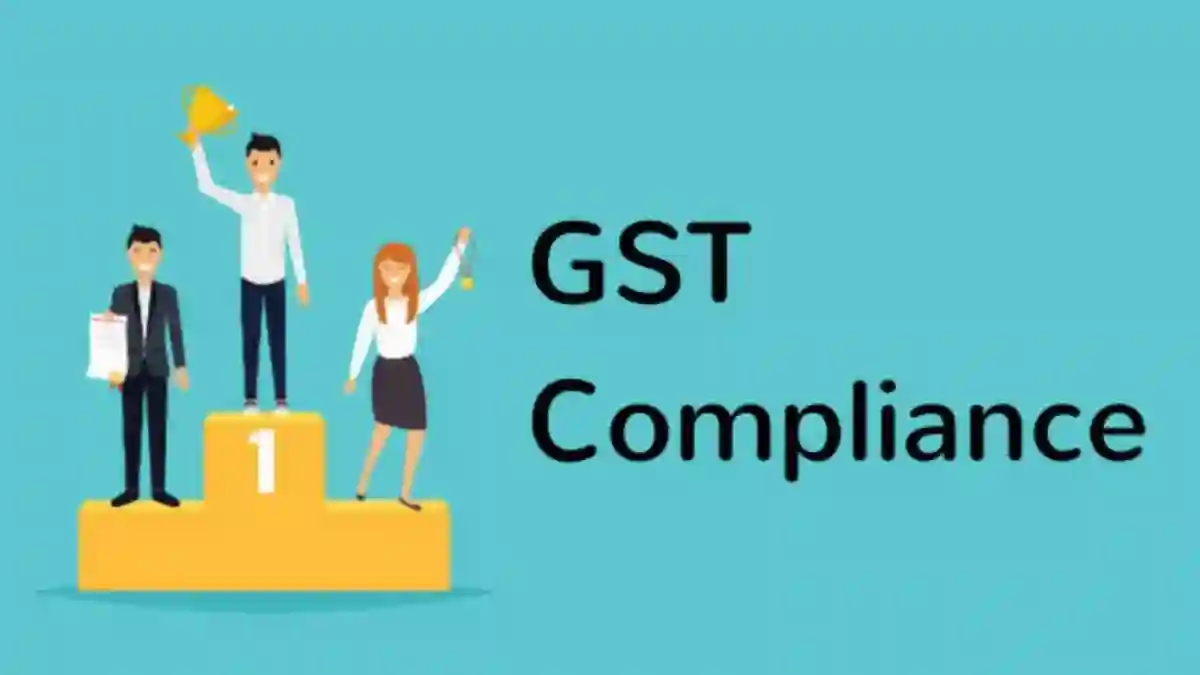Goods and Services Tax (GST) is a game-changer in India’s indirect tax regime. It has replaced multiple indirect taxes, such as Central Excise Duty, Service Tax, Value Added Tax (VAT), and other local taxes, with a single tax system. The implementation of GST has simplified the taxation system, reduced tax evasion, improved tax compliance, and enhanced the ease of doing business. However, compliance with GST regulations is a critical aspect of doing business in India. In this blog, we will discuss the impact of GST on compliance, the challenges businesses face in complying with GST regulations, and the best practices for GST compliance.
Table of Contents
Impact of GST on Compliance
GST has had a significant impact on compliance in India. It has made compliance more streamlined, standardized, and efficient. Here are some of the ways GST has affected compliance:
- Standardization: GST has standardized the tax structure across the country, making it easier for businesses to comply with tax regulations. Previously, businesses had to comply with multiple tax laws and regulations, which varied from state to state. With GST, businesses only need to comply with a single tax law.
- Digitization: GST has made compliance more digital. All GST filings and registrations are done online, making it easier for businesses to file returns and track compliance.
- Transparency: GST has made compliance more transparent. All businesses registered under GST are required to file returns regularly, which ensures that they are reporting their transactions accurately.
Challenges in GST Compliance
While GST has simplified compliance, it has also presented several challenges for businesses. Here are some of the challenges businesses face in complying with GST regulations:
- Frequent Changes: GST regulations are subject to frequent changes, which can be challenging for businesses to keep up with. Businesses must keep track of the latest updates and adjust their compliance processes accordingly.
- Technical Difficulties: GST compliance requires businesses to have a certain level of technical proficiency. Small businesses, in particular, may struggle with the digital aspect of GST compliance.
- Lack of Clarity: Some GST regulations may be ambiguous, making it difficult for businesses to determine how to comply with them. Lack of clarity in regulations can lead to confusion and non-compliance.
Best Practices for GST Compliance
Businesses can adopt the following best practices for GST compliance:
- Stay Up-to-Date: Businesses must keep track of the latest updates and changes in GST regulations. They can subscribe to newsletters, attend webinars, and consult with tax experts to stay informed.
- Invest in Technology: Investing in technology can help businesses automate compliance processes and reduce the risk of errors. Businesses can use GST compliance software to manage their GST filings and registrations.
- Maintain Accurate Records: Maintaining accurate records of transactions is crucial for GST compliance. Businesses must ensure that they are keeping records of all transactions, including invoices and receipts.
GST Compliance Checklist for Businesses in India
Apart from maintaining proper records and filing timely returns, businesses are also required to comply with various other provisions under GST. Some of the key compliance requirements under GST are:
- Invoice and record keeping: Businesses are required to maintain proper records of their inward and outward supplies and issue GST-compliant invoices to their customers.
- Input Tax Credit (ITC): Businesses can claim the input tax credit on the taxes paid on purchases made for business purposes. However, to claim ITC, businesses must ensure that their suppliers have filed their returns and paid the taxes.
- Filing of returns: GST returns must be filed on a monthly or quarterly basis, depending on the type of registration. Businesses must file their returns within the due dates to avoid penalties.
- Payment of taxes: GST payments must be made on a monthly basis. Businesses must ensure timely payment of taxes to avoid interest and penalties.
- Annual return: Every registered person is required to file an annual return by 31st December of the subsequent financial year.
- Audit: Businesses with a turnover of more than Rs. 2 crores are required to get their accounts audited by a Chartered Accountant or Cost Accountant and file the GST audit report.
Non-compliance with GST provisions can lead to penalties and legal proceedings. It is, therefore, crucial for businesses to ensure timely and accurate compliance with GST provisions.
Conclusion
GST compliance is critical for businesses operating in India. While GST has simplified compliance, it has also presented some challenges. Businesses must stay up-to-date with the latest regulations, invest in technology, and maintain accurate records to comply with GST regulations. By adopting best practices for GST compliance, businesses can minimize the risk of non-compliance and operate legally in the country.
FAQ’s
1. What is GST compliance?
GST compliance refers to the set of rules and regulations that businesses must adhere to under the Goods and Services Tax (GST) regime. It includes maintaining proper records, filing timely returns, paying taxes, and other requirements.
2. Who is required to comply with GST?
Every business entity involved in the supply of goods or services, whose annual turnover exceeds Rs. 20 lakhs (Rs. 10 lakhs for northeastern and hill states) is required to register for GST and comply with its provisions.
3. What are the consequences of non-compliance with GST provisions?
Non-compliance with GST provisions can lead to penalties, interest, and legal proceedings. It can also harm the reputation of the business and affect its ability to operate in the long run.
4. How can businesses ensure GST compliance?
Businesses can ensure GST compliance by maintaining proper records, filing timely returns, paying taxes on time, and complying with other provisions under GST. They can also seek the help of professionals such as Chartered Accountants or Tax Consultants for guidance.
5. What are some common mistakes businesses make while complying with GST?
Some common mistakes businesses make while complying with GST include incorrect filing of returns, delay in payment of taxes, incorrect valuation of goods or services, and non-compliance with invoice and record-keeping requirements.




minx xyandanxvurulmus.qnKvltRFbMu3
pornhub bahis siteleri vurgunyedim.mkz3FxE9rUEG
porno yaralandinmieycan.EXSRCQbrTbnh
porn siteleri citixx.vOAaKiRwQYaW
food porn hyuqgzhqt.iphMoim5YSnA
amciik siteleri ewrjghsdfaa.GIiFrHu5Mr2P
craft porn wrtgdfgdfgdqq.dqRvztlUQ0GD
seks siteleri wrtgdfgdfgdqq.wWLhD2dBQwdY
escort siteleri wrtgdfgdfgdqq.xcjBVO929R38
childrens sex bjluajszz.rs0lyF0afODj
bahis siteleri porn sex incest bxjluajsxzz.D8i536X3ddEj
seks siteleri 0qbxjluaxcxjsxzz.mwGBfJsN97mo
Every time I read one of your posts, I come away with something new and interesting to think about. Thanks for consistently putting out such great content!
am siteleri mobileidn.sFHghooqDAI2
bahis porno bingoxx.cOnLCoglnZ0q
bahis siteleri sikis 250tldenemebonusuxx.Mg15ep3E11e8
porno siteleri eyeconartxx.njsny4lxRwuC
escort siteleri vvsetohimalxxvc.f3QOLsYiQW8U
porn siteleri tthighereduhryyy.HIuCVYwZmLT
Hi my loved one! I want to say that this article is amazing, nice written and include almost all significant infos.
I’d like to see extra posts like this .
Your blog posts never fail to entertain and educate me. I especially enjoyed the recent one about [insert topic]. Keep up the great work!
4k porn gghkyogg.her4o0aNpsM
pornhd 4k ggjennifegg.F4d8ekibboQ
new porn site hd ggjinnysflogg.wVrU2vTo5In
Having read this I believed it was very informative.
I appreciate you finding the time and energy to put
this information together. I once again find myself personally spending a significant
amount of time both reading and leaving comments.
But so what, it was still worth it!
We just wanted to take a moment to acknowledge all the hard work and effort you’ve been putting in lately. Keep up the amazing job, you’re doing great!
Attractive section of content. I just stumbled upon your blog and in accession capital to assert that I get actually enjoyed account your blog posts. Anyway I will be subscribing to your augment and even I achievement you access consistently fast.
Every time I read a new post, I feel like I’ve learned something valuable or gained a new perspective. Thank you for consistently putting out such great content!
This is my first time pay a visit at here and i am in fact pleassant to read all at one place.
fashionflag top hd porn download fashionflag.A64lkBGHE9f
goodhere Orgy porn vurucutewet.P5gyuOnp1TF
ladyandtherose Random porn backlinkseox.IuMqqQgOAU0
jenniferroy ポルノのキャスティング japanesexxporns.ZBQVggpb6jJ
बड़ा गधा अश्लील txechdyzxca.8xegp6hzXpB
समलैंगिक अश्लीलता hkyonet.nrqsjtScfNz
ਖਿਡੌਣੇ ਪੋਰਨ ਹਨ madisonivysex.7WXRMumWqcz
ladesbet ਮਿਸ਼ਰਤ ਪੋਰਨ ladesinemi.PX6KISriTQJ
ladesbet 大きなお尻ポルノ ladestinemi.Lr62fNmbHhm
I was suggested this blog by way of my cousin. I am
not positive whether or not this put up is written by
him as nobody else recognise such exact about my trouble.
You’re amazing! Thank you!
Usually I do not read article on blogs however I would like to say that this writeup very compelled me to take a look at and do so Your writing taste has been amazed me Thanks quite nice post
This is the right webpage for everyone who really wants to find
out about this topic. You understand so much its almost hard to argue with you (not
that I personally would want to…HaHa). You definitely put
a new spin on a topic that has been discussed for decades.
Wonderful stuff, just great!
Hi to every one, the contents existing at this
website are really amazing for people experience, well, keep up the good work
fellows.
Nice post. I was checking continuously this blog and I’m impressed!
Extremely helpful information specially the last part 🙂 I care for such information much.
I was seeking this certain info for a long time.
Thank you and good luck.
This is very attention-grabbing, You’re an excessively professional blogger.
I have joined your rss feed and sit up for looking
for more of your great post. Additionally, I have shared your site in my social networks
I take pleasure in, cause I discovered exactly what I used to be having a look for.
You’ve ended my 4 day lengthy hunt! God Bless you man.
Have a great day. Bye
I am in fact thankful to the holder of this website who has shared
this wonderful post at here.
This paragraph is really a fastidious one it helps new web viewers,
who are wishing in favor of blogging.
Hey there! Do you use Twitter? I’d like to follow you if that would be ok.
I’m definitely enjoying your blog and look forward to new posts.
Highly descriptive blog, I enjoyed that a lot.
Will there be a part 2?
Good day very nice website!! Man .. Excellent .. Wonderful ..
I will bookmark your website and take the feeds additionally?
I’m glad to seek out so many useful info here within the publish,
we’d like work out extra techniques in this regard, thank you for sharing.
. . . . .
I do trust all of the ideas you’ve presented for your post.
They are very convincing and can certainly work. Nonetheless, the posts
are too quick for novices. May just you please prolong them a little from next time?
Thanks for the post.
https://www.heritagefamilypantry.com/s1tONk3QGr1
Today, I went to the beach with my children. I found a sea shell and gave it to my 4 year old daughter and said “You can hear the ocean if you put this to your ear.” She placed
the shell to her ear and screamed. There was a hermit crab inside and it pinched her ear.
She never wants to go back! LoL I know this is entirely off topic but I had to
tell someone!
FpfvqK VUiicVu DPid BXLIID QmxHj NQGRrKf CiYOrrp
siWyp wRo GduSTwLU Uxi poYP
https://t.me/s/TgWin_1win